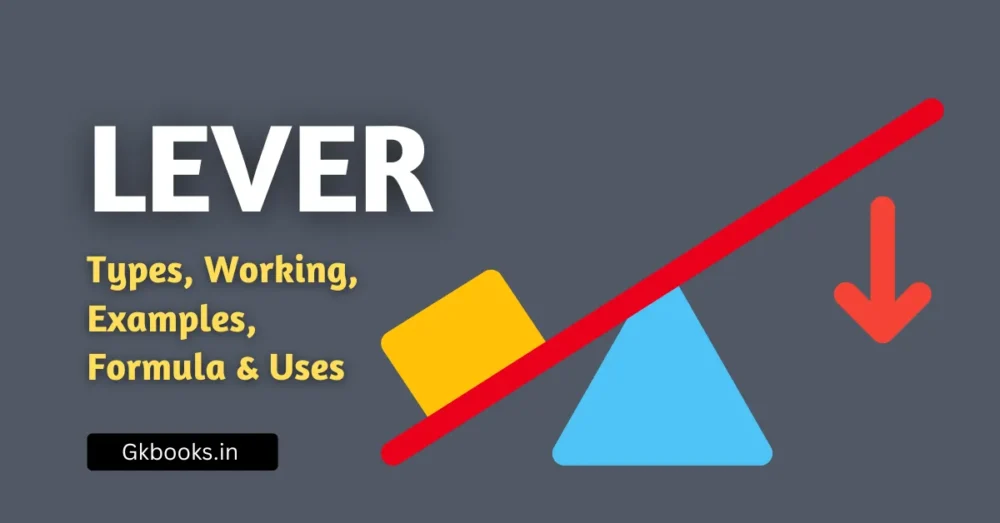The gravitational force between two objects depends mainly on two factors:
- Mass of the objects – Greater the mass, stronger the gravitational force.
- Distance between the objects – Larger the distance, weaker the gravitational force.
Let’s explore this topic step by step. 👇
Introduction
Gravity is one of the most important forces in the universe. It keeps planets in orbit, holds the atmosphere around Earth, and allows us to walk on the ground without floating away. In simple words, gravity is the force of attraction between two objects with mass.
For competitive exams like SSC, RRB NTPC, UPSC, and State-level exams, questions on gravitational force are very common because they test both basic science knowledge and conceptual clarity. Understanding the factors affecting gravitational force makes it easy to solve numerical problems and answer theory-based questions.
What is Gravitational Force?
The gravitational force is the attractive force that pulls two objects toward each other due to their masses.
It is mathematically given by: F=G×m1×m2 / r2

Where:
- F = Gravitational Force
- G = Universal Gravitational Constant (6.67 × 10⁻¹¹ Nm²/kg²)
- m₁ and m₂ = Masses of the two objects
- r = Distance between the centers of the two objects
Which Factors Affect Gravitational Force?
1. How does Mass affect gravitational force?
- The gravitational force increases with the increase in mass of the objects.
- Example: The Earth pulls harder on you than a small stone because the Earth has a huge mass.
👉 Exam Note: If one mass is doubled, gravitational force also doubles.
2. How does Distance affect gravitational force?
- The force decreases as the distance between objects increases.
- It follows the inverse square law: If distance becomes 2 times, the force reduces to 1/4th.
👉 Shortcut Mnemonic: “D² Down Force” → Distance squared makes the force go down.
3. Does the Medium between objects matter?
- In theory, gravity works in vacuum and passes through everything.
- But in practical cases, other forces (like air resistance or buoyancy) may reduce the effect we feel.
4. Does the Shape & Size of Objects affect gravity?
- Gravitational pull works as if the mass is concentrated at the center.
- For planets and stars, spherical shape simplifies calculations.
5. How does Height/Altitude affect gravitational force?
- At higher altitudes (mountains, satellites), the distance from Earth’s center increases, so gravity decreases slightly.
- Example: Astronauts in orbit feel weightlessness because they are farther from Earth’s pull.
Table: Factors Affecting Gravitational Force
| Factor | Effect on Gravity | Example |
|---|---|---|
| Mass | More mass → stronger gravity | Earth vs. Stone |
| Distance | More distance → weaker gravity | Moon’s gravity weaker than Earth’s |
| Altitude | Higher altitude → less gravity | Mountain vs. Sea level |
| Planet Size | Bigger planets → more gravity | Jupiter has stronger gravity than Earth |
| Medium | Gravity acts even in vacuum | Space experiments |
Did You Know?
🌍 Weight on Moon – You weigh only 1/6th of your Earth weight on the Moon.
🌌 The Sun’s gravity keeps planets in orbit around it.
🛰️ Satellites stay in space due to a balance between gravity and motion.
💡 Gravity is the weakest of all fundamental forces, yet it rules the universe!
🚀 At the International Space Station, astronauts are in free fall, which is why they float.
Exam-Oriented Key Points
- Gravity depends only on mass and distance (formula-based questions are common).
- Altitude changes gravity slightly – important for geography-based questions.
- Inverse square law is a hot topic for SSC & UPSC prelims.
👉 Tip: Remember the formula and practice short numerical problems (distance ×2 = force ÷4).
Sample MCQs
Q1. Gravitational force between two bodies depends on:
(a) Mass only
(b) Distance only
(c) Both mass and distance ✅
(d) None
Q2. If the distance between two masses is doubled, the gravitational force becomes:
(a) Half
(b) One-fourth ✅
(c) Double
(d) Same
Q3. The value of Universal Gravitational Constant (G) is:
(a) 9.8 m/s²
(b) 6.67 × 10⁻¹¹ Nm²/kg² ✅
(c) 3 × 10⁸ m/s
(d) 1.6 × 10⁻¹⁹ C
Q4. Which planet has the highest gravity?
(a) Earth
(b) Mars
(c) Jupiter ✅
(d) Saturn
Q5. At higher altitude, weight of a body:
(a) Increases
(b) Decreases ✅
(c) Remains constant
(d) Becomes zero
Summary
- Gravitational force is the attractive pull between two masses.
- It mainly depends on mass (directly proportional) and distance (inversely proportional to square).
- Altitude, planet size, and practical conditions also affect the force.
- Remember: More mass = More force | More distance = Less force.
Important FAQs
Q1. What are the two main factors affecting gravity?
Mass of objects and distance between them.
Q2. Why is gravity weaker on the Moon than on Earth?
Because the Moon has less mass compared to Earth.
Q3. Does gravity act in space?
Yes, gravity acts everywhere, even in outer space.
Q4. What happens to gravity at higher altitudes?
It decreases as distance from Earth’s center increases.
Q5. Which planet has the strongest gravity?
Jupiter.
Q6. Is gravitational force always attractive?
Yes, it always pulls objects together.
Q7. Why do astronauts float in space?
Because they are in free fall under Earth’s gravity, creating a weightless effect.
References
- NCERT Class 9 Science – Chapter 10: Gravitation
- Science Info – Gravitational Force: Principle, Law, Factors, Waves, Examples
About the Author
Hi, I’m Srikanta Mondal. I am a blogger specializing in competitive exam preparation, covering subjects like science, history, polity, and current affairs. With years of experience in simplifying complex topics, my goal is to make learning easy, exam-oriented, and confidence-boosting for aspirants of SSC, RRB NTPC, UPSC, and State-level exams.
To stay updated with the latest GK and Current Affairs infographics, follow our official Instagram and Facebook page and prepare for exams easily.


